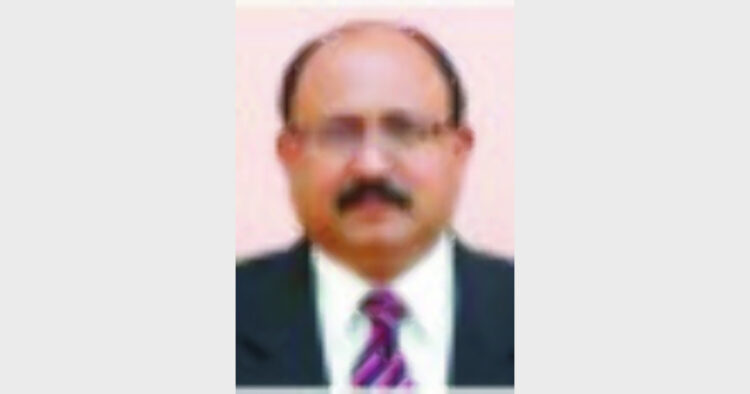REPORT-6
Rajeev Sharma
The recent second Nuclear Security Summit in Seoul focused on a range of nuclear-related issues. Highlights of its outcome communiqué include measures to secure the management of highly enriched uranium, measures to ensure radiological security, promoting transport security and combating illicit trafficking, security of sensitive information and increasing international cooperation and assistance.
The attempt is to put in place an institutionalised mechanism to strengthen synergy between nuclear safety and nuclear security. The Seoul Summit gives greater oversight role and responsibility for the International Atomic Energy Agency (IAEA) which by far has been straitjacketed by problems of the political kind. Leaders of 49 countries who converged in Seoul for the Summit reaffirmed the essential responsibility and central role of the IAEA in strengthening the international nuclear security framework and recognised the value of the IAEA Nuclear Security Plan 2010-2013. Three new countries—Denmark, Lithuania and Azerbaijan – participated in the Seoul Summit.
The leaders encouraged States and the nuclear industry to increase voluntary contributions to the IAEA’s Nuclear Security Fund as well as in-kind contributions. The Seoul Summit also made a strong pitch for continued IAEA activities to assist, upon request, national efforts to establish and enhance nuclear security infrastructure through its various support programmes.
The leaders urged all states to observe special precautions for appropriately securing and accounting of highly enriched uranium (HEU) and separated plutonium; ensure safe, secure and timely removal and disposition of nuclear materials from facilities no longer in use; minimise the use of HEU and encouraged States to announce voluntary specific actions intended to minimise the use of HEU by the end of 2013.
These steps can effectively counter the threat of terrorists going nuclear, a dreadful scenario which still remains a nightmare for the global strategic community, especially against the backdrop of reports from experts and specialised bodies that have warned that the global stock of fissile material is enough to make over 126,000 nuclear weapons. The fact that the world has to guard against pilferage or systemic breakdown in guarding almost 1,475 tonnes of highly enriched uranium and 485 tonnes of separated plutonium the world over in itself poses a formidable challenge to the custodians of this fissile material across the world.
On March 11, 2011 when a deadly combination of tsunami and earthquake severely damaged Japan’s Fukushima nuclear power plant, the world realised yet again that one doesn’t require a terrorist to lay his hands on a nuclear weapon to threaten large human population across several continents. A natural disaster can wreak as much havoc as a terrorist going nuclear. And unlike the latter scenario, there is no crime-and-punishment fallout for the former, though it can be as deadly or even deadlier.
The Fukushima disaster put continents on alert for feared radioactive leaks from the damaged plant: from Oceania to Russia to Asia to Europe to the Americas. For weeks and months, everywhere countries were put on high alert for dealing with contaminated merchandise emanating from Japan and the worried neighbourhood region like Russia and the Far East countries kept a minute-to-minute tab on their air, trying to detect radioactive quotient in the air coming from Japan. The Fukushima accident, triggered by Mother Nature, proved a point with such urgency like never before: in today’s world nuclear safety is as much important as nuclear security.
Another task before the world leaders attending the Summit was restoring confidence of the international community in the nuclear industry in wake of the Fukushima mishap that triggered shutdown of most of Japan's 54 commercial nuclear reactors and Germany's declaration to phase out nuclear power completely by 2022.
The Seoul summit was an important event, which provided a unique forum to the world leaders to pledge political support on behalf of their governments to the urgent international task of implementing fool-proof nuclear security programmes. For its part, India has already risen to the occasion and displayed its commitment to the cause in no uncertain terms by organising a two- day meeting in New Delhi on January 16-17 of the Sherpas for the Seoul summit. Such a meeting was organised for the first time by any country. As many as 49 participating countries and four international organisations – the UN, IAEA, Interpol and the European Union – attended the Sherpas’ meeting at New Delhi, as against 46 countries that participated in the first nuclear security summit held in Washington in April 2010.
The first Nuclear Security Summit in Washington in 2010 had focused on finding ways and means of strengthening international safeguards to prevent nuclear terrorism. The event’s focus would have been different and would have indubitably centered on nuclear safety if Fukushima had happened by then. The Seoul summit is also expected to be used by world leaders to impress upon the international community on the safety aspects of nuclear power generation.
One obvious concrete measure to deal with Fukushima-type disasters should be enhancing the role of IAEA and making it obligatory for all countries under the United Nations system to report their holdings of civilian nuclear material to the international atomic watchdog agency. Setting up of an institutionalised mechanism to ensure global compliance would be, and should be, on the front burner of the Seoul Summit.
The Seoul summit made a well defined attempt in this direction to ensure that an international law is created to ensure this happens and it becomes legally binding for every UN member State’s compliance to this international mechanism. This architecture should be in place by the time the 3rd Nuclear Security Summit takes place in the Netherlands in 2014.














Comments